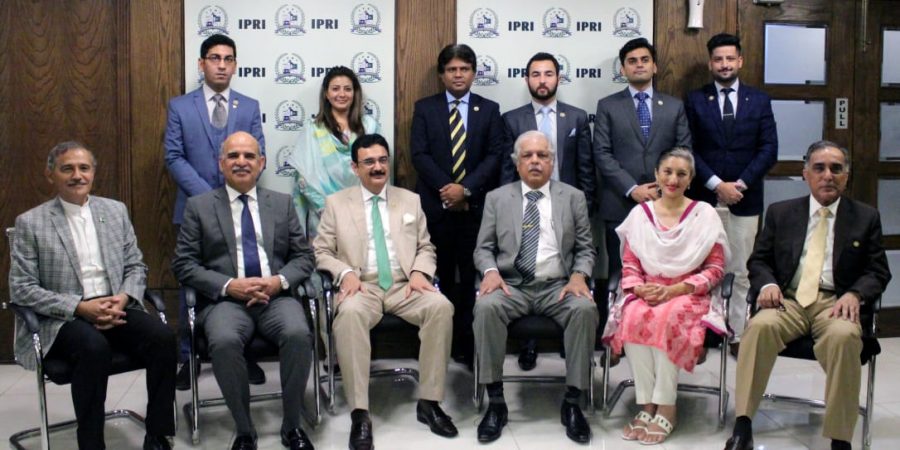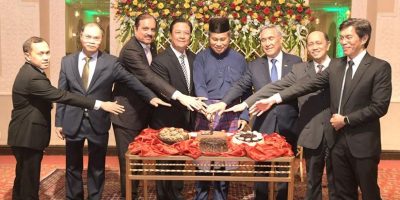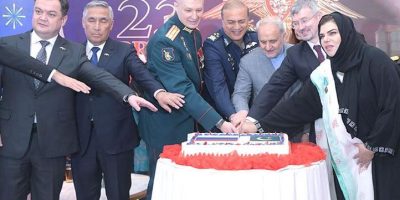Sea-bases deterrence, blue economy vital for Pakistan: experts

ISLAMABAD, AUG 28 (DNA) – Achieving sea-based deterrence and developing blue economy is vital for Pakistan. Media’s role is also critical for creating maritime awareness.
This was the conclusion of the Media Workshop on ‘Strategic Importance of Maritime Affairs for Pakistan and the Role of Media’organised by the Islamabad Policy Research Institute, here in the capital today.
The workshop was well attended by students of media communications, media personnel, journalists and reporters from all major news and print media houses.
Renowned academician Prof. Dr Muhammad Ali, Vice Chancellor, Quaid-i-Azam University in his Inaugural address highlighted that Pakistan has untapped natural resources, and called for efficient use of ocean resources for economic growth, improved livelihoods, especially of fishing communities and sustainable ocean ecosystems.
‘When 80 per cent of the global trade is carried via sea routes and aquaculture is the fastest growing food sector, Pakistan can harness this potential and move towards becoming a blue economy,’ the Vice Chancellor said. He also pointed out that Pakistan should harness renewable energy from the sea like wind and develop its Hyderabad Belt.
In the working session of the Maritime Media Workshop, Ambassador Vice Admiral (R) Syed Khawar Ali HI (M), Director General, National Institute of Maritime Affairs, Bahria University discussed ‘Contemporary Maritime Dynamics in the Indian Ocean Region (IOR) and Pakistan’s Preparedness.’
He said seas are major lines of communication, and hence,require collective security – ‘Nations must be able to subordinate their individual political agendas for the common good to all. Multilateral diplomacy and international law needs to be the norm at sea.
Dr Salma Malik from Quaid-i-Azam University made a presentation on ‘Pakistan’s Maritime Imperatives – Awareness & Media’, and pointed out that with the expansion of the Exclusive Economic Zone (EEZ) to 350 nautical miles, effective investment in the EEZ can easily double the size of Pakistan’s economy.
Offering an overview of borders andsecurity challenges, Dr Malik opined that Pakistan is a destination and transit country for both migrant smuggling and human trafficking. ‘In Pakistan’s context, migrant smuggling is more prevalent than other forms of human trafficking. Migrant smuggling to Europe has the largest economic blueprint in terms of fees paid to smugglers and the numbers of migrants involved,’ she said.
In this regard, under Regional Maritime Security Patrol, Pakistan Navy is operating against pirates and terrorism at many choking points around the Arabian Sea, Gulf of Aden, Gulf of Oman and Strait of Hormuz, she shared. While giving her recommendations, Dr Malik said that celebrating Maritime Dayonce a year is important, however, wider country-wide exposure and coverage of maritime issues, especially of the 2019 theme ‘Empowering
Discussing nuclearization of Indian Ocean and concerns for Pakistan, Dr Zafar Nawaz Jaspal from Quaid-i-Azam University highlighted that deployment of the Arihant in the Indian Ocean was alarming for Pakistan because the vessel can remain underwater, virtually undetected, for months at a time. Mor
Earlier, President of IPRI, Ambassador Vice Admiral (R) Khan Hasham bin Saddique in his Welcome Address emphasised the importance of understanding maritime affairs for Pakistan and role of media in creating sea awareness. He said that it is imperative for nations to utilize their maritime resources for economic development which ultimately fortifies defensive capabilities.
Concluding the media workshop, Dr Azhar Ahmad, Head of Department, Humanities & Social Sciences, Bahria University stressed that earlier it was the responsibility of the media to provide vital information to the public, but with changing times and access to more mediums, capacity and impact of media has increased significantly.
‘In today’s day and age, the media not only influences perceptions, but also influences decisions and policy-making. Such an important tool should be used with caution and prudence.
In order to do this, the media needs to understand all aspects of the issues they cover. Sea blindness is a global concern, one which the media in Pakistan needs to highlight more,’ he concluded. The media workshop was followed by an interactive Q/A session between the media participants and speakers.=DNA
===============
Related News

Brunei High Commissioner hosts 42nd National Day reception
A special highlight of the evening was High Commissioner Kamal Ahmed’s warm welcome to membersRead More

Russian embassy marks defender of fatherland day in Islamabad
ISLAMABAD, FEB 23 /DNA/ – The Embassy of the Russian Federation in Islamabad hosted aRead More


Comments are Closed